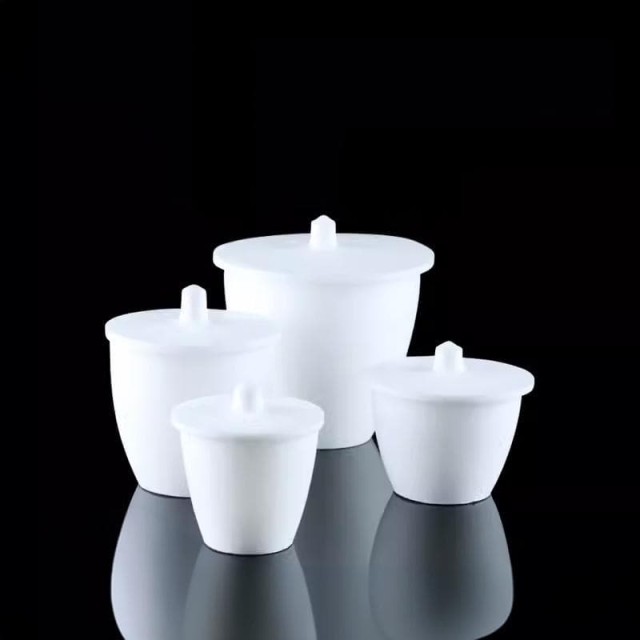
PTFE material
Custom Machined and Molded PTFE Teflon Parts Manufacturer with PTFE Crucible and Lid
Item Number : PTFE-29
Price varies based on specs and customizations
- Material
- PTFE
- Specification
- See the form
Shipping:
Contact us to get shipping details Enjoy On-time Dispatch Guarantee.
Why Choose Us
Easy ordering process, quality products, and dedicated support for your business success.
Introduction
PTFE crucibles are renowned for their exceptional chemical resistance and thermal stability, making them ideal for a variety of laboratory and industrial applications. These crucibles are particularly useful in environments where the containment of highly corrosive substances is required, as PTFE's inert nature prevents chemical reactions with the contents. Below are the main application areas of PTFE crucibles:
- Chemical Analysis: PTFE crucibles are extensively used in chemical analysis labs for the dissolution and precipitation of samples, especially when dealing with aggressive acids and bases.
- High-Temperature Evaporation: PTFE crucibles are employed due to their ability to withstand high temperatures without degradation, ensuring the integrity of the evaporation process.
- Material Research: They are crucial in material research labs where the study of material properties under controlled environments is essential.
These applications highlight the versatility and robustness of PTFE crucibles in various scientific and industrial settings, emphasizing their importance in maintaining the integrity of chemical and physical processes.
Details & Parts
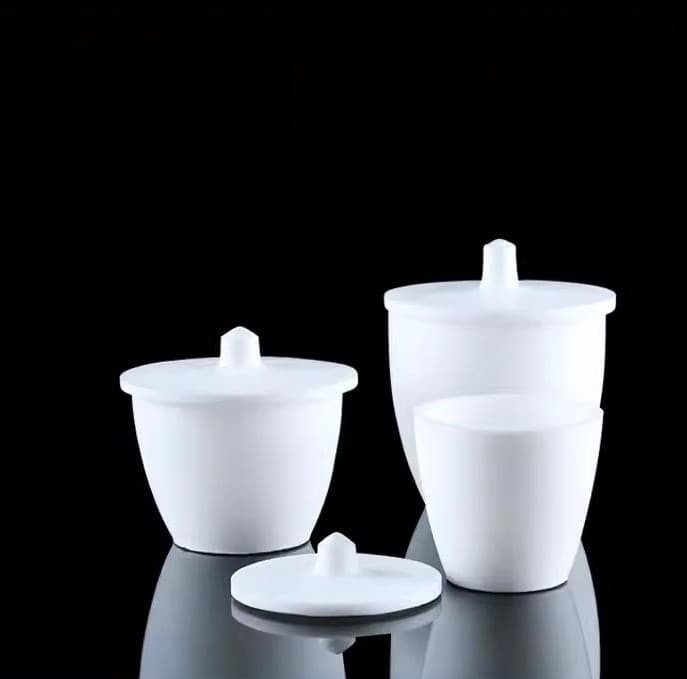
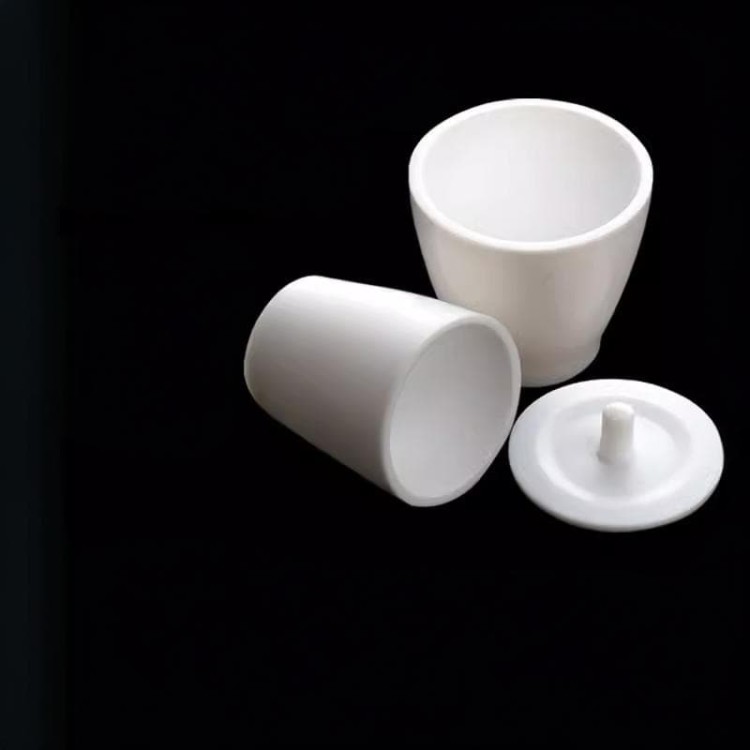
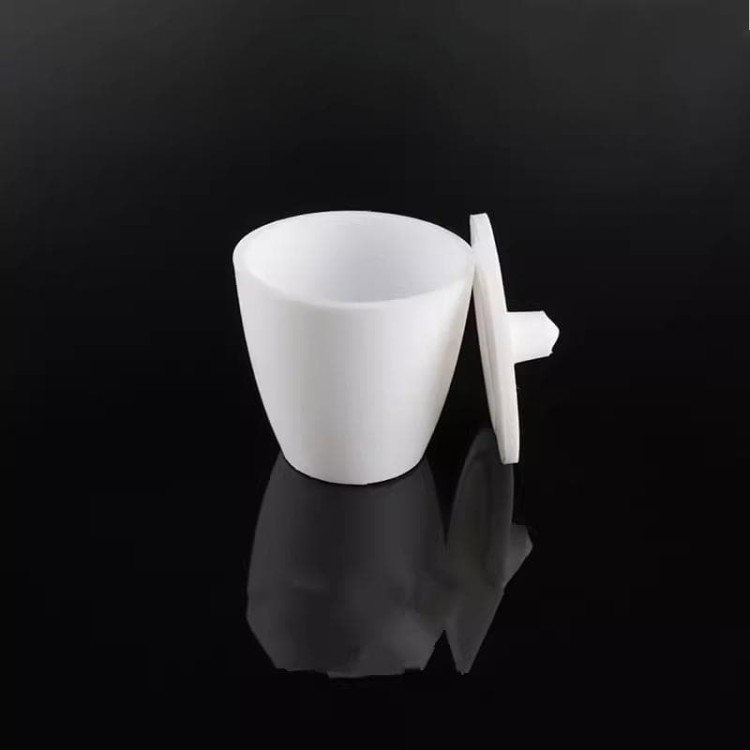
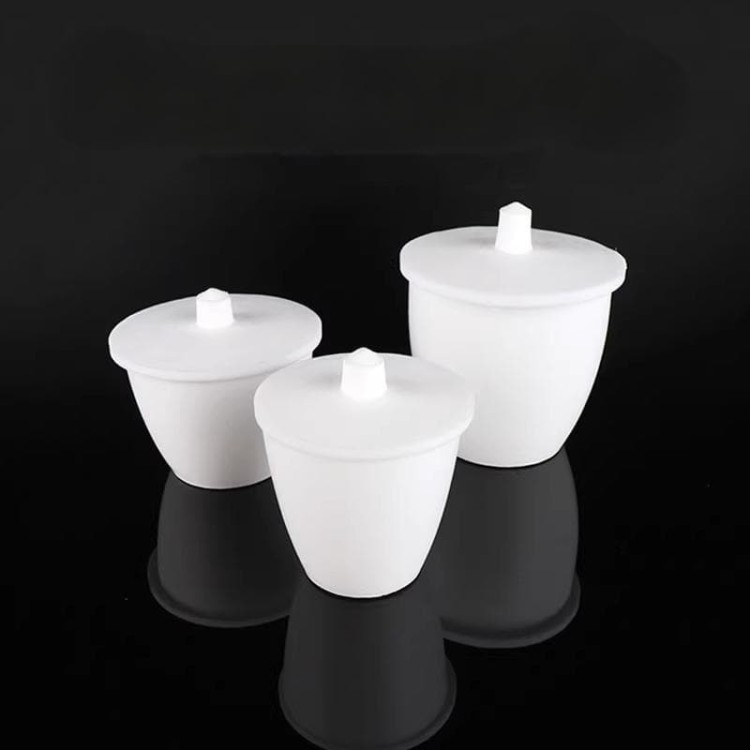
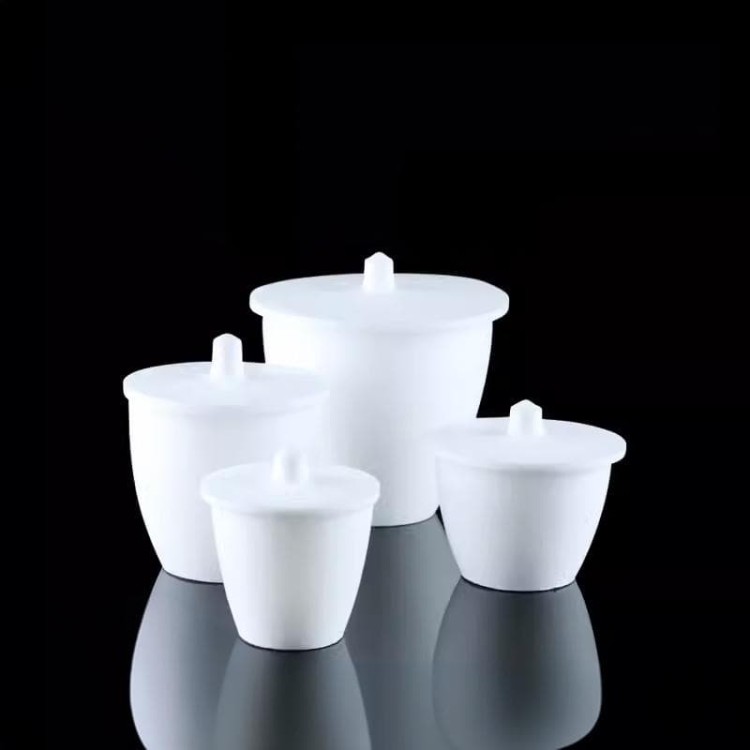
Technical specifications
PTFE crucible (ordinary):
| Model | Cup outer diameter(mm) | Inner diameter of cup mouth(mm) | Bottom outer diameter(mm) | Height(mm) | Height cover(mm) | Wall thickness(mm) |
|---|---|---|---|---|---|---|
| 20ml | 37 | 33 | 29 | 39 | 52 | 2 |
| 30ml | 48 | 44 | 31 | 45 | 61 | 2 |
| 50ml | 58 | 54 | 38 | 42 | 58 | 2 |
| 100ml | 62 | 58 | 43 | 59 | 80 | 2 |
| 250ml | 78 | 72 | 50 | 88 | 105 | 2 |
PTFE crucible special cover:
| Model | Cover outer diameter(mm) | Cover inner ring outer diameter(mm) | The widest diameter of the handle(mm) | Cover thickness(mm) |
|---|---|---|---|---|
| Applicable to 20ml crucible | 42 | 31 | 12 | 2 |
| Applicable to 30ml crucible | 53 | 41 | 11 | 3 |
| Applicable to 50ml crucible | 64 | 47 | 11 | 3 |
| Applicable to 100ml crucible | 68 | 54 | 11 | 3.5 |
| Applicable to 250ml ordinary crucible | 93 | 70 | 11 | 3.5 |
| Applicable to 250ml thick crucible | 92 | 73 | 11 | 4 |
PTFE crucible (thickened):
| Model | Cup outer diameter(mm) | Inner diameter of cup mouth(mm) | Bottom outer diameter(mm) | Height(mm) | Height cover(mm) | Wall thickness(mm) |
|---|---|---|---|---|---|---|
| 30ml | 49 | 43 | 32 | 46 | 61 | 3~4 |
| 50ml | 58 | 52 | 38 | 42 | 59 | 3~4 |
| 100ml | 61 | 55 | 42 | 58 | 79 | 3 |
| 250ml | 82 | 74 | 45 | 77 | 96 | 4~5 |
The size is for reference only, please refer to the actual product.
Advantages
PTFE crucibles offer a multitude of advantages that make them a superior choice for laboratory applications, especially when handling corrosive substances and high temperatures. Here are the key benefits:
- Chemical Resistance: PTFE crucibles are highly resistant to most chemicals, including hydrofluoric acid. This makes them ideal for use in environments where other materials might degrade or react with the substances being tested.
- Inertness: The inert nature of PTFE ensures that it does not contaminate the samples, making it suitable for use with sensitive culture cells such as bacteria or mosses. This feature is crucial for maintaining the integrity of experimental results.
- High Temperature Resistance: Capable of withstanding temperatures up to 260ºC, PTFE crucibles are suitable for a wide range of high-temperature applications. This durability ensures that they can be used in various laboratory settings without the risk of melting or deforming.
- Excellent Dielectric Properties: PTFE's exceptional dielectric properties make it a preferred choice for applications involving electrical insulation or where electrical properties of materials are being tested.
- Corrosion Resistance: The material's inherent resistance to corrosion means that PTFE crucibles maintain their integrity and performance over time, even under harsh conditions.
These advantages make PTFE crucibles a versatile and reliable choice for laboratories dealing with a wide range of chemicals and temperatures, ensuring safety, efficiency, and accuracy in scientific research and testing.
Designed for You
KinTek provide deep custom made service and equipment to worldwide customers, our specialized teamwork and rich experienced engineers are capable to undertake the custom tailoring hardware and software equipment requirements, and help our customer to build up the exclusive and personalized equipment and solution!
Would you please drop your ideas to us, our engineers are ready for you now!
Trusted by Industry Leaders

FAQ
How Should PTFE Crucibles Be Cleaned?
What Is A Press Mold?
What Is Press Mould In Ceramics?
How Are Pellet Molds Used?
What Types Of Materials Can Be Pelletized Using Pellet Molds?
How Can One Select The Appropriate Pellet Mold For Their Specific Application?
4.8 / 5
Exceptional chemical resistance, perfect for our lab!
4.7 / 5
Highly durable, withstands harsh conditions well.
4.9 / 5
Inert material ensures no contamination, excellent!
4.6 / 5
Great temperature resistance, versatile for many applications.
4.8 / 5
Machine-finished surfaces make cleaning a breeze.
4.7 / 5
Unbreakable, a huge safety and cost saver in the lab.
4.9 / 5
Lightweight yet robust, ideal for our daily use.
4.8 / 5
Excellent dielectric properties, crucial for our research.
4.6 / 5
Optically clear, great for observation without interference.
REQUEST A QUOTE
Our professional team will reply to you within one business day. Please feel free to contact us!
Related Products
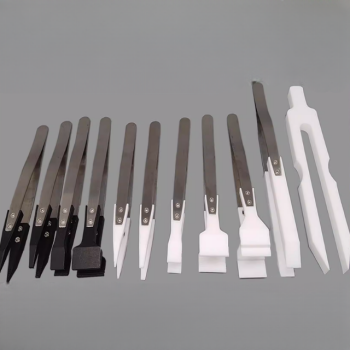
Custom PTFE Teflon Parts Manufacturer for PTFE Tweezers
PTFE tweezers inherit the excellent physical and chemical properties of PTFE, such as high temperature resistance, cold resistance, acid and alkali resistance, and corrosion resistance to most organic solvents.

Custom PTFE Teflon Parts Manufacturer PTFE Beaker and Lids
The PTFE beaker is a laboratory container that is resistant to acid, alkali, high and low temperatures and is suitable for temperatures ranging from -200ºC to +250ºC. This beaker has excellent chemical stability and is widely used for heat treatment samples and volume analysis.
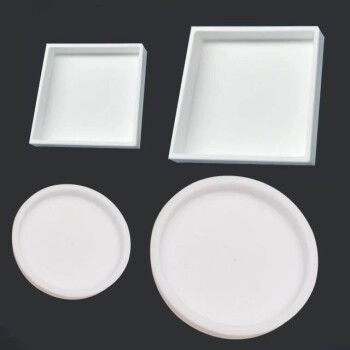
Custom PTFE Teflon Parts Manufacturer for PTFE Containers
PTFE container is a container with excellent corrosion resistance and chemical inertness.
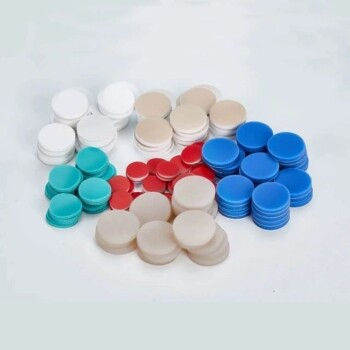
Custom PTFE Teflon Parts Manufacturer for Gaskets and More
Gaskets are materials placed between two flat surfaces to enhance the seal. To prevent fluid leakage, sealing elements are arranged between static sealing surfaces.
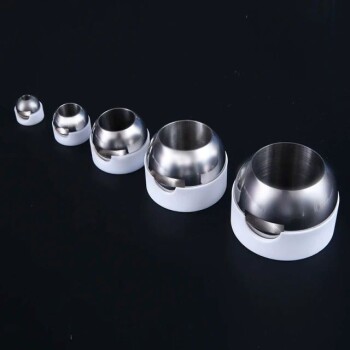
Custom PTFE Teflon Parts Manufacturer for PTFE Ball Valve Seat
Seats and inserts are vital components in the valve industry. As a key component, polytetrafluoroethylene is usually selected as the raw material.

Custom PTFE Teflon Parts Manufacturer for PTFE Measuring Cylinder 10/50/100ml
PTFE measuring cylinder are a rugged alternative to traditional glass cylinders. They are chemically inert over a wide temperature range (up to 260º C), have excellent corrosion resistance and maintain a low coefficient of friction, ensuring ease of use and cleaning.
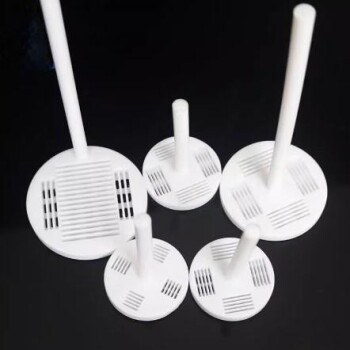
Custom Machined and Molded PTFE Teflon Parts Manufacturer for Laboratory ITO FTO Conductive Glass Cleaning Flower Basket
PTFE cleaning racks are mainly made of tetrafluoroethylene. PTFE, known as the "King of Plastics", is a polymer compound made of tetrafluoroethylene.
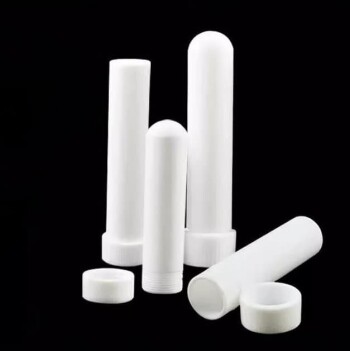
Custom PTFE Teflon Parts Manufacturer for Centrifuge Tubes
PTFE centrifugal tubes are highly valued for their exceptional chemical resistance, thermal stability, and non-stick properties, making them indispensable in various high-demand sectors. These tubes are particularly useful in environments where exposure to corrosive substances, high temperatures, or stringent cleanliness requirements are prevalent.
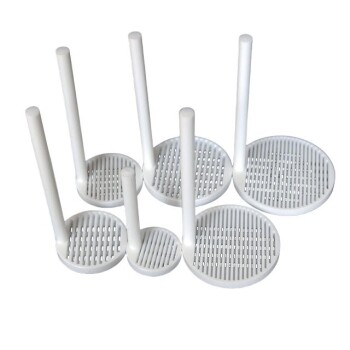
Custom PTFE Teflon Parts Manufacturer for Cleaning Racks
PTFE cleaning racks are mainly made of tetrafluoroethylene. PTFE, known as the "King of Plastics", is a polymer compound made of tetrafluoroethylene.
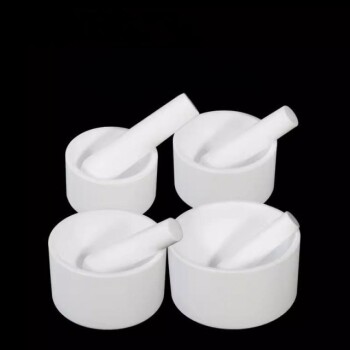
Custom PTFE Teflon Parts Manufacturer Grinding Bowl
PTFE is renowned for its exceptional chemical resistance, thermal stability, and low friction properties, making it a versatile material in various industries. The PTFE grinding bowl, specifically, finds applications where these properties are crucial.
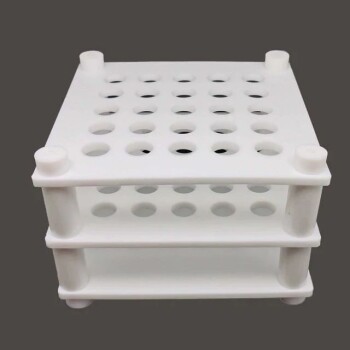
Custom PTFE Teflon Parts Manufacturer for Centrifuge Tube Racks
The precision-made PTFE test tube racks are completely inert and, due to the high temperature properties of PTFE, these test tube racks can be sterilized (autoclaved) without any problems.

Custom PTFE Teflon Parts Manufacturer for Magnetic Stirring Bar
The PTFE magnetic stirring bar, made from high-quality PTFE, offers exceptional resistance to acids, alkalis, and organic solvents, coupled with high-temperature stability and low friction. Ideal for laboratory use, these stirring bars are compatible with standard flask ports, ensuring stability and safety during operations.
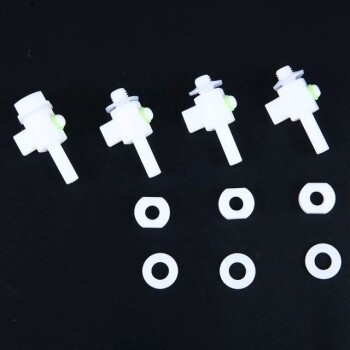
Custom PTFE Teflon Parts Manufacturer for Air Valve Applications
PTFE small air valve for gas-liquid sampling and sampling bag for sample collection.
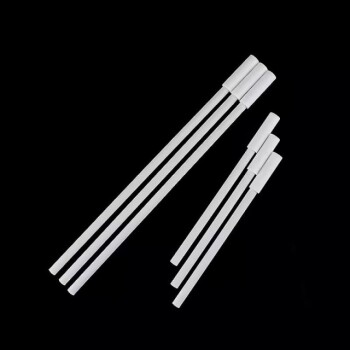
Custom PTFE Teflon Parts Manufacturer for PTFE Stirring Bar Recovery Rod
This product is used for stirrer recovery, and is resistant to high temperature, corrosion, and strong alkali, and is almost insoluble in all solvents. The product has a stainless steel rod inside and a polytetrafluoroethylene sleeve outside.
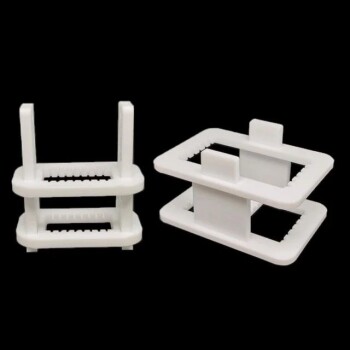
Custom PTFE Teflon Parts Manufacturer for Conductive Glass Substrate Cleaning Rack
The PTFE conductive glass substrate cleaning rack is used as the carrier of the square solar cell silicon wafer to ensure efficient and pollution-free handling during the cleaning process.
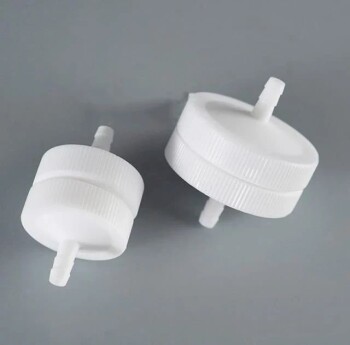
Custom PTFE Teflon Parts Manufacturer for Sampling Filters
PTFE filter element is a commonly used industrial filter element, mainly used to filter corrosive media such as high-purity chemical substances, strong acids, and strong alkalis.
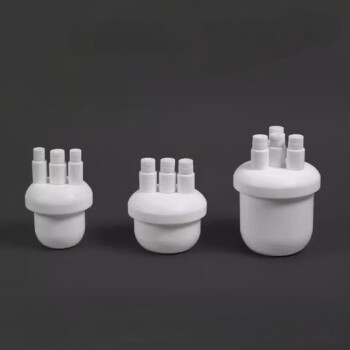
Custom PTFE Teflon Parts Manufacturer for Three-Necked Round Bottom Flask
PTFE flask, is a versatile laboratory container made from PTFE, offering exceptional chemical resistance, temperature stability, and non-stick properties. Ideal for handling corrosive substances and high-temperature applications, these flasks are essential in various laboratory procedures, including heating, mixing, and storage of chemicals.

Custom PTFE Teflon Parts Manufacturer for Culture Dish and Evaporation Dish
The PTFE culture dish evaporating dish is a versatile laboratory tool known for its chemical resistance and high-temperature stability. PTFE, a fluoropolymer, offers exceptional non-stick properties and durability, making it ideal for various applications in research and industry, including filtration, pyrolysis, and membrane technology.

Custom PTFE Teflon Parts Manufacturer for PTFE Buchner Funnel and Triangular Funnel
The PTFE funnel is a piece of laboratory equipment used primarily for filtration processes, particularly in the separation of solid and liquid phases in a mixture. This setup allows for efficient and rapid filtration, making it indispensable in various chemical and biological applications.
Related Articles

Performance and application of polytetrafluoroethylene (PTFE) in high temperature environment

Innovative Application of PTFE in Mechanical Seals
PTFE has become one of the core materials in the field of mechanical seals due to its unique chemical stability, low friction coefficient (0.04-0.15), wide temperature range (-268°C to +315°C) and excellent corrosion resistance (pH 0-14).

The key role of PTFE in semiconductor manufacturing: from gas pipelines to electrical insulation
From high-purity gas delivery pipelines to precision electrical insulation components, the multi-faceted application of PTFE in the semiconductor industry chain provides important guarantees for the purity, stability and reliability of the manufacturing process.

PTFE seals: the invisible guardian of industrial leakage prevention
PTFE Seals are used to prevent liquid or gas leakage and are widely used in valves, pumps, and piping systems.

PTFE's high temperature and corrosion resistance: Why it is indispensable in industry
The unique advantages of polytetrafluoroethylene (PTFE) in high temperature and corrosion resistance analyze why it has become an indispensable material in industry, especially in applications in harsh environments.

Polytetrafluoroethylene (PTFE): How low friction coefficient promotes industrial progress
Explore the unique advantages of polytetrafluoroethylene (PTFE)'s low coefficient of friction and analyze how it promotes progress and innovation in industrial technology in terms of reducing wear and improving equipment efficiency.

How to use PTFE to improve the working efficiency of pumps and valves
Polytetrafluoroethylene (PTFE) has become a key material for improving the efficiency of pumps and valves due to its unique physical and chemical properties.

Exploring the Multifunctional Electrolytic Cell Water Bath: Applications and Benefits
Discover the versatile applications of multifunctional electrolytic cell water baths in various industries. Learn about their benefits, components, and how they facilitate chemical reactions and temperature control.

Comparison of Pyrolytic Graphite and Pyrolytic Boron Nitride Crucibles
A detailed comparison of pyrolytic graphite and pyrolytic boron nitride crucibles, focusing on their preparation processes, characteristics, and applications.

Introduction to Various Ceramic Crucibles
An overview of different types of ceramic crucibles, their properties, and applications.

How to Choose Crucible Materials That Prevent Chemical Degradation in Vacuum Induction Melting
Learn how to choose crucible materials for vacuum induction melting to prevent chemical degradation and optimize alloy purity. Essential guide for industrial applications.

Alumina Crucibles in Precision Casting
Explores the use of alumina crucibles in precision casting, focusing on their properties and advantages in high-temperature alloy melting.